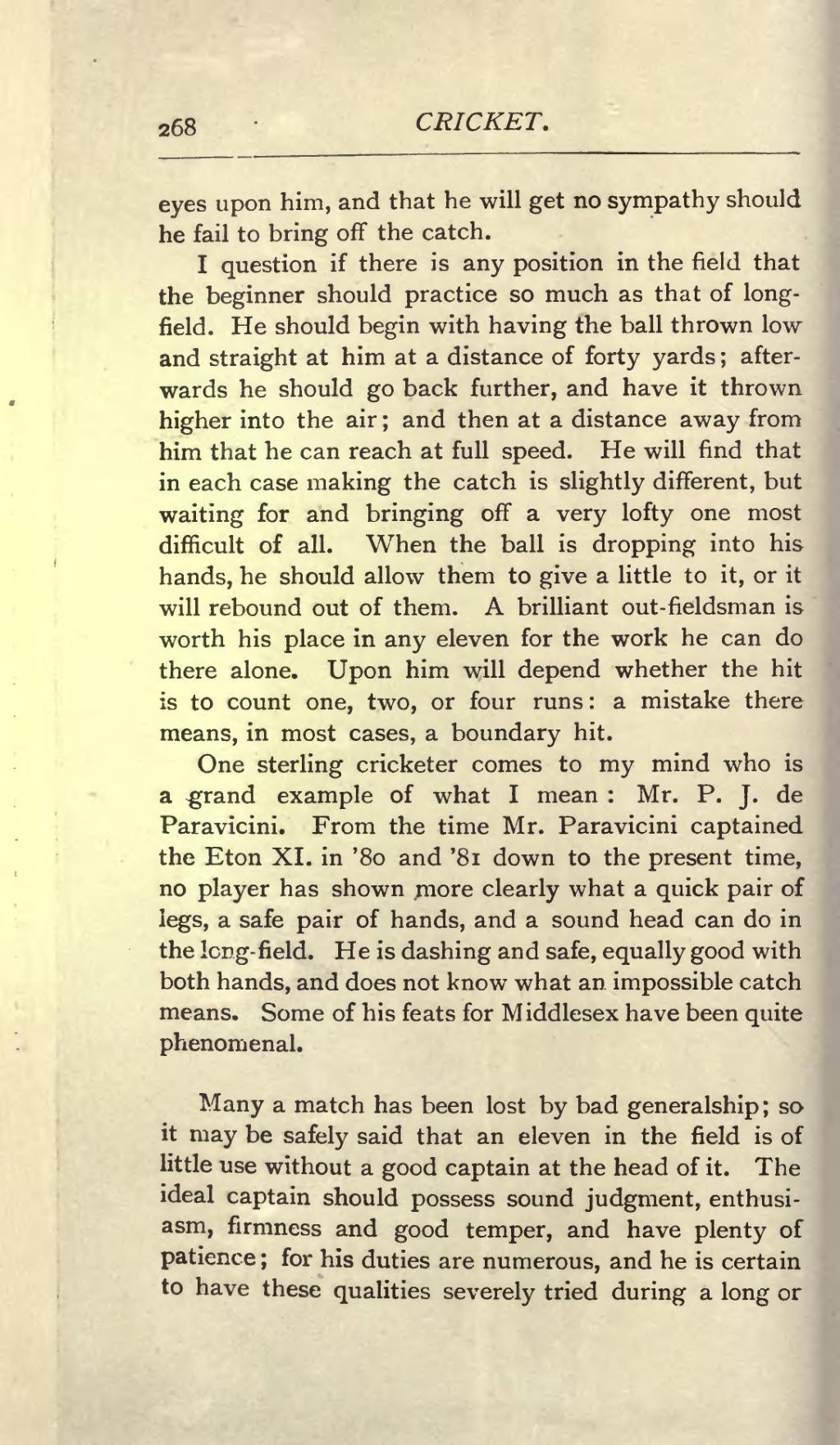eyes upon him, and that he will get no sympathy should he fail to bring off the catch.
I question if there is any position in the field that the beginner should practice so much as that of longfield. He should begin with having the ball thrown low and straight at him at a distance of forty yards; afterwards he should go back further, and have it thrown higher into the air; and then at a distance away from him that he can reach at full speed. He will find that in each case making the catch is slightly different, but waiting for and bringing off a very lofty one most difficult of all. When the ball is dropping into his hands, he should allow them to give a little to it, or it will rebound out of them. A brilliant out-fieldsman is worth his place in any eleven for the work he can do there alone. Upon him will depend whether the hit is to count one, two, or four runs: a mistake there means, in most cases, a boundary hit.
One sterling cricketer comes to my mind who is a grand example of what I mean: Mr. P. J. de Paravicini. From the time Mr. Paravicini captained the Eton XI. in '80 and '81 down to the present time, no player has shown more clearly what a quick pair of legs, a safe pair of hands, and a sound head can do in the long-field. He is dashing and safe, equally good with both hands, and does not know what an impossible catch means. Some of his feats for Middlesex have been quite phenomenal.
Many a match has been lost by bad generalship; so it may be safely said that an eleven in the field is of little use without a good captain at the head of it. The ideal captain should possess sound judgment, enthusiasm, firmness and good temper, and have plenty of patience; for his duties are numerous, and he is certain to have these qualities severely tried during a long or
